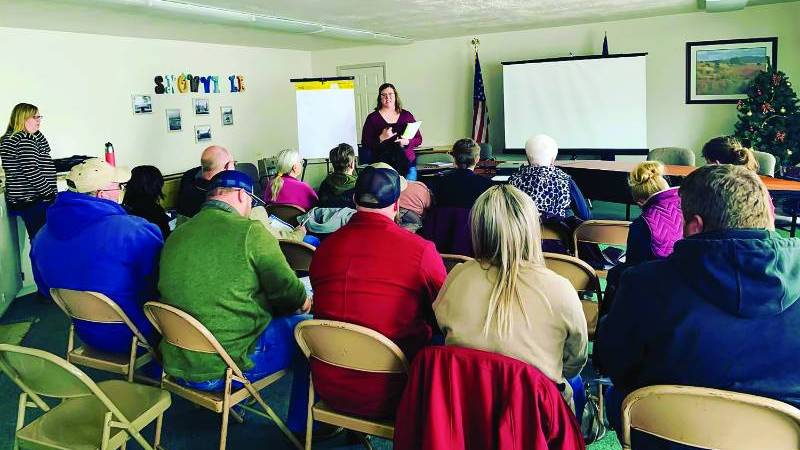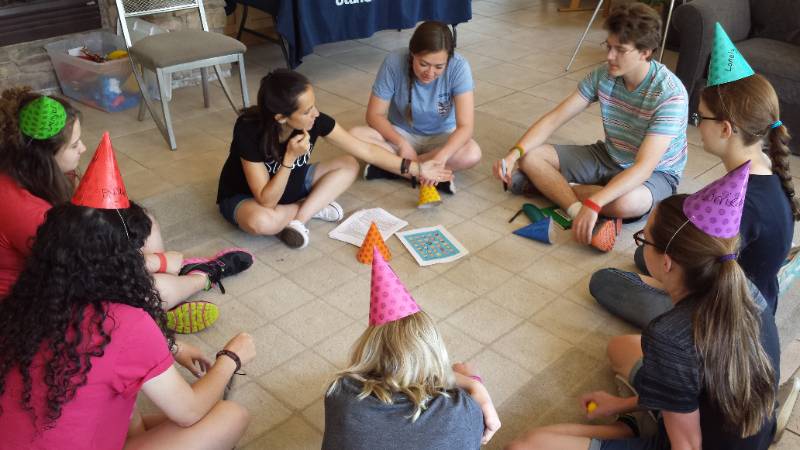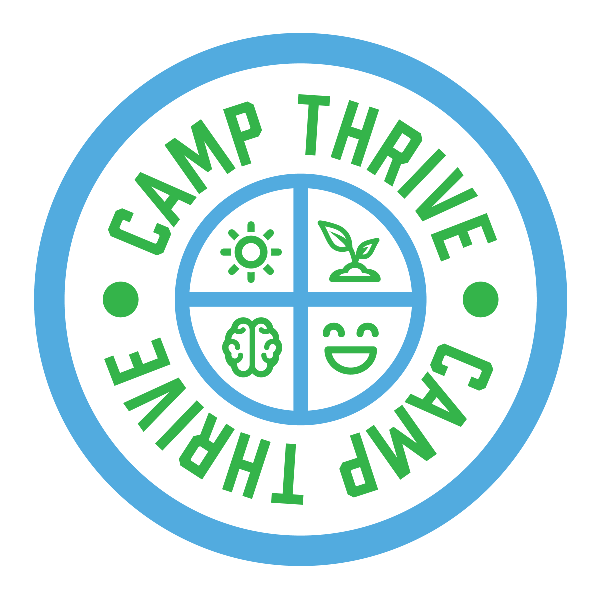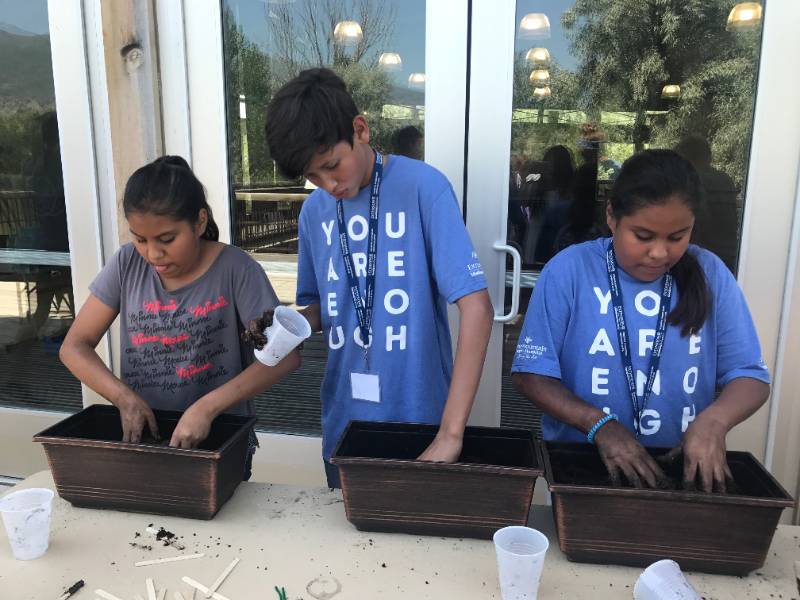Impacts: Mental Health Programs

Suicide continues to be a leading cause of death across all age groups and demographics, especially in the state of Utah (Utah Department of Health, 2019).To combat the issue of suicide and aid in providing information about mental health, Utah State University Extension has created a team focused on providing preventative mental health education throughout Utah. Through a statewide effort, USU Extension reaches a diverse audience including youth, Latino communities, and rural farmers and ranchers. Please read below to see how our programs are helping Utahns of all ages and backgrounds beat mental health challenges.
Sincerely,
Mental Health First Aid Trainings
Mental Health First Aid (MHFA) is one of the best courses for providing suicide prevention education. An evidence-based national training, MHFA can be likened to CPR in that course participants learn to assist someone experiencing symptoms at the beginning stage of mental illness or during an acute episode of mental distress or substance misuse. MHFA First Aiders learn what to look for and how to assist individuals and connect them to professionals and/or self-help strategies as needed. These classes are taught to adult community mem- bers with the goal to help fellow adults. A separate training with similar goals,Youth MHFA, is available to adults who work with and have connections to youth.

Adult Mental Health First Aid Trainings Impacts
- Increased program instructors from 2 to 12
- 578 First Aiders trained
(from Oct. 2018–Dec. 2019) - >35 Trainings held during this time
Level of confidence in recognizing signs that someone is dealing with a mental health challenge
Before the Training
After the Training
Level of confidence in being able to reach out to someone dealing with a mental health challenge
Before the Training
After the Training
798 individuals were referred* to professional and/or self-help or other support strategies
734 - linked to professional services
1,362 - linked to self-help strategies
*A referral is defined as linking a person to a mental health or related service, resource, or support, including self-help strategies such as support from friends and family, healthy habits, etc
Adult MHFA Participant Impacts
I am currently providing support and information to my son’s friend who is struggling. Not being afraid to talk about suicide and having great resources to offer have been huge assets in supporting him. It is an ongoing battle, but hopefully he will continue on the road to getting help.
Beng able to teach this class and see the difference in the comfort level of talking about and helping others talk about suicide and mental health challenges from the beginning of the course to the end is like nothing else. I know that the information is making a difference in lives across Utah.
After taking the Mental Health First Aid course, I have felt a lot more confident in identifying those who might benefit from mental health care and referring them to appropriate professional service. Thank you!

Youth Mental Health First Aid Impacts
- Increased program
instructors from 2 to 24 - 1,814 First Aiders trained
(from Oct. 2018–Dec. 2019) - 1,962 Youth were referred* to professional and/or self-help or other support strategies (from 2015–2019)
- >90 Trainings held
(from 2015–2019)
*A referral is defined as linking a person to a mental health or related service, resource, or support, including self-help strategies such as support from friends and family, healthy habits, etc.
Youth MHFA Participant Impacts
As a mother of a teen with mental health issues, it is very hard not to take it all on yourself. This training has helped me with that child, as well as my other children. When I refer them to self-help techniques, it not only empowers them, but also helps me not feel so burdened. I'm now not afraid to ask hard questions and do it in a way that builds the relationship.


I believe the skills I have learned have helped me reach students who are struggling emotionally. They have taught me to be patient, listen, and offer tools for dealing with hard things.
In just the first month of taking the Mental Health First Aid workshop, I experienced the need to provide information and resources to someone I have been working with who attempted suicide. It was so helpful to have the information on hand and feel confident that I was able to talk with the youth and the parents about what help was out there for them.
Specific Population Impacts
Youth – CampThrive

CampThrive is a camp that has fun and engaging activities that teach skills to help build mental health and resilience. Older youth are trained as facilitators and group leaders for the camp. Since 2016, camp participation has grown from 15 youth to 30 youth per year. Both youth participants and camp leaders shared that they learned the following:

“Self-awareness is knowing yourself and not being ashamed of it.”
“I am going to apply what I learned here in my everyday life and be more aware and kind to those around me.”
“We need to connect to those around us so we can help them move forward and, in turn, they can help us.”
“Resilience is perseverance. It's when you get pushed down and always come back up. Like grass.”
Davis County Latino Community – Latino Advisory Council
The purpose of the Mentes Sanas (Healthy Minds) Council is to advance mental health in northern Davis County cities. The council is connected to a local community coalition that provides guidance and support. Mentes Sanas also benefits the coalition by providing a Latino youth perspec- tive. Latino community adults are also involved through quarterly meetings where they are able to provide their valuable perspective for both the youth council and the community coalition.
- 7 Youth Members
- A list of mental health providers offering services in Spanish was compiled
- 5 Youth attended the state 4-H Teen Winter Retreat focusing on relationship education
- Funding was received to replicate Mentes Sanas Latino Advisory Council in one more area within Davis County.
- 25 Attended the 2nd annual Family Night in 2019. The event included dinner, a speaker, and an interactive workshop facilitated by the Mentes Sanas Council youth.
Rural Farmers and Ranchers
Utah residents in rural communities have an increased risk for mental health challenges and suicide due to many factors, including: lack of medical providers, stigma associated with mental health, rising living costs with no increase in salaries, and isolation. Last year, USU Extension faculty taught classes in four rural counties, reaching over 50 rural community members and partnering with multiple agencies.
Future Goals & Projects
USU Extension plans to continue its reach in working with and training community members on mental health and suicide prevention throughout the state. This year the goals include increasing the number of MHFA instructors, partnering with organizations throughout the state to focus on diverse populations, creating online courses focused on suicide prevention, and creating more usable content to help Utah residents of all ages.


 Utah 4-H & Youth
Utah 4-H & Youth